By Stuart Moore
[Editor’s note: this got lost in my end of year papers, but it’s too good not to publish.]
Growing up in the 1970s, we hated the 1970s. Everyone and everything, from the news media to our older friends and siblings, told us we should. Prices were skyrocketing; oil became so scarce you had to wait in lines at gas stations. Important people informed us that the age of American prosperity was over—from now on, things were going to be hard. And the hippies called us selfish, slackers. We’d missed it all: both the good life and the good fight.
Pop culture wasn’t doing much better. By the late 60s animation was basically a lost art, not to be rediscovered for two decades. Comic books were obviously doomed; printing got blurry and page counts shrank as the prices continued to rise. TV was worse than ever, recorded on cheaper and cheaper film with duller and duller scripts. Film was briefly a bright spot, but by 1979, the maverick directors of the 70s had managed to vanish up their own assholes, corkscrew their way out again, and bury themselves in the biggest pile of cocaine the world had ever seen.
That’s when Star Trek: The Motion Picture came out.
TMP holds the distinction of being the only piece of Trek filmed during the 1970s. It shows in many ways: the waste, the egos on parade, the endless drab swathes of beige, beige, beige. I was young enough to love the film on first viewing. I rewatched it this holiday season, fully conscious of its flaws, and enjoyed the hell out of it. I recommend (a) using earbuds to get the full effect of the lush Jerry Goldsmith score and (b) watching in ten-minute intervals to forestall drowsiness.
I charged straight on into Star Trek II: The Wrath of Khan, which has a soft spot in my heart, as it does for a lot of people. I first saw it in one of those old Times Square theaters with my college girlfriend Lisa. We took the train into NYC for a mid-finals-period getaway, probably on opening day. I found the film very emotional and affecting, on the cusp as I was of beginning my adult life.
After the movie, they handed out comment cards. One of the questions read “Why did you come to this film?” I wrote down “Old loyalties.” I remember Lisa saying, of the scene at the end where Kirk says he feels young: “I didn’t really believe him. But I knew what he meant.”
New York stuck with me; Lisa didn’t. That’s the way things go. The 1980s were already underway, that cold button-down decade when the right wing rose up and spread its wings over Mordor. In New York, financiers became cruel gods and book publishing experienced a brief moment of glory. I skated on the outside of that, poor and distant from the centers of power.
The Moral Majority took over the Republican Party; the news media grew more conservative, a shift that wouldn’t be arrested—let alone reversed—until the blatant crimes of Donald Trump. Greed, we were told, was good, and hippies were objects of ridicule. Democrats muttered and smirked, hiding in their holes and focusing on the arts.
Looking back, the 1970s didn’t seem so bad.
With Hulu as my temptress, I flirted with Star Trek III: The Search for Spock but gave up after ten minutes. Maybe I was too lost in the glow of a particular era, and didn’t feel like reliving that grim next chapter. Maybe I didn’t want to watch the films deteriorate. Maybe I just wanted Captain Kirk to stay young, or sort of young, or at least young in that one little moment when he stared at a newborn planet shining on the screen.
Old loyalties.
-Stuart Moore
December 2020
Inspired by Denny O’Neil’s Trekkie (1982, Epic Illustrated). RIP
© 2020 Stuart Moore

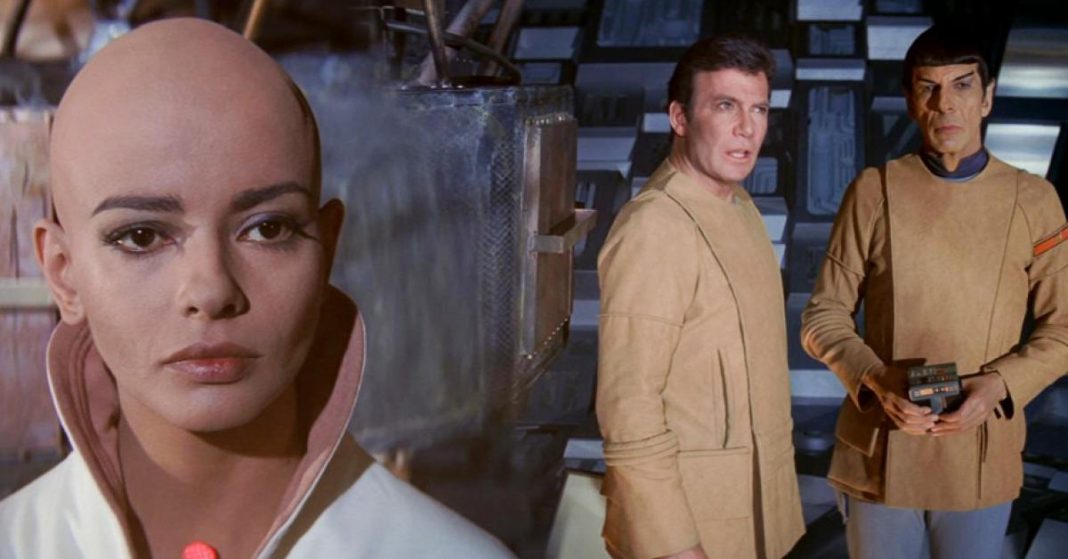
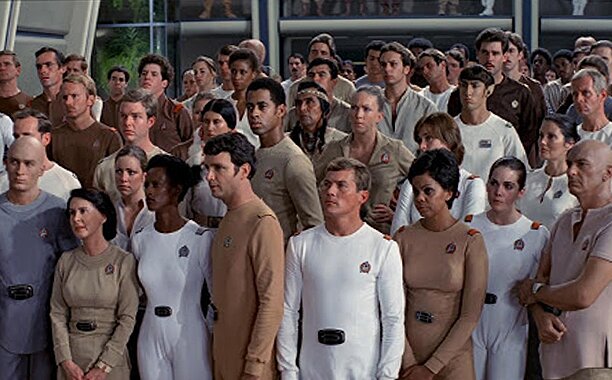
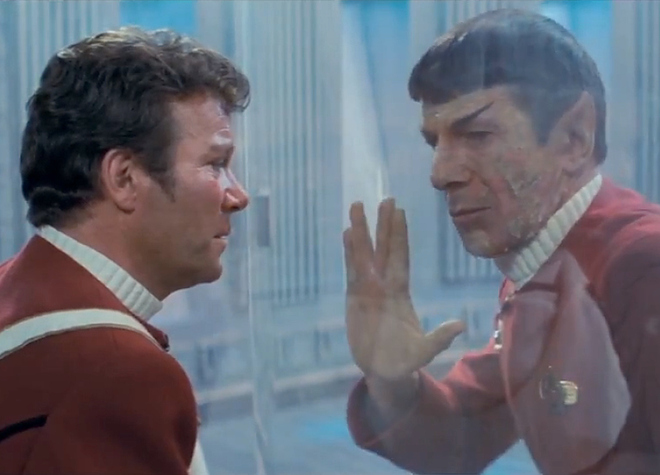
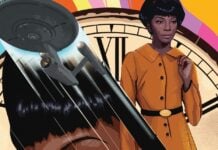

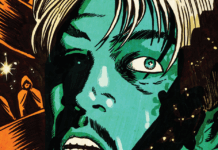





One thought, one nit to pick.
THE NIT: “TMP holds the distinction of being the only piece of Trek filmed during the 1970s.” Technically, not true — STAR TREK: THE ANIMATED SERIES was created in the ’70s and originally ran on NBC 1973-74 (and is, I believe, still the only STAR TREK series to win an Emmy Award).
THE THOUGHT: Interesting, engaging opinion piece. Of course, there are other opinions. Some of us didn’t hate the 1970s as we lived through them, despite the tumult. After all, history shows us that every decade has its share of tumult, of one sort or another …
Comments are closed.